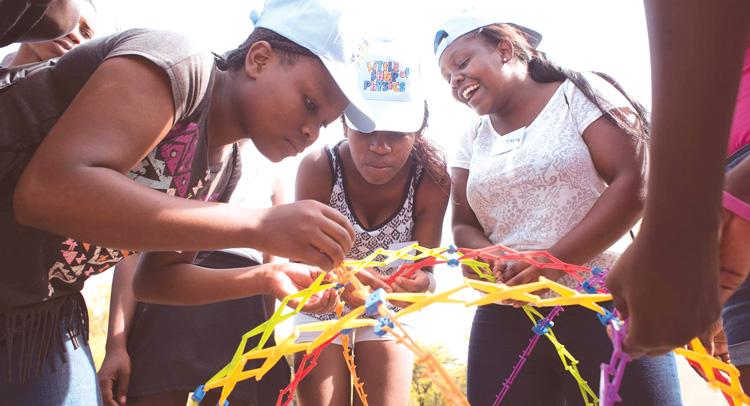
You can Zoom until you are blue in the face but you can’t mentor through a computer screen

Africa’s forced entry into a digital world as a result of the Covid pandemic, marks one of those dramatic turns in history when it’s tata to the good old days, and hello new world. Well, here we are, about two and a half years after the virus bomb exploded, suffering from a severely depressed economy, and not really knowing what to do about it.
Namibians certainly landed hard and fast in the new digital world. What was a novelty in the beginning, work at home, quickly turned into a bane as more and more stay-at-homes figured out that you actually have to work, even while you are at home. For the younger generation, it was an in-your-face lesson in work ethics and discipline while the older generation welcomed the gains in productivity, provided you were ‘well-connected’ at home, so to speak.
So we quickly learned which gadgets worked and which did not. But more or less at the end of 2020, I think we had most of it figured out and we started getting comfortable in our brave new digital world. And as our competence grew, so we conducted bigger and better meetings, all through the monitor of a computer, up to the point where we were able eventually to conduct entire conferences to audiences of hundreds of people, without anybody getting within touching distance of any other person.
Another year later, and Zoom meetings have become commonplace, even in Namibia. That there was a growing market was all too clear when Zoom was no longer the only technology for having a meeting through a piece of glass. Within a fairly short period, IT service providers programmed their own apps for digital meetings, and some even went back to the cupboard to dust off old concepts that have suddenly got relevant again. And so the digital world was born.
We are going on to three years since Covid alpha and maybe seven months since Covid omicron, in the meantime having had to get used to another new/old concept: – ‘in-person’. Now who the clever linguist is, or was, that came up with this grammatical abomination, I don’t know, but that it is a dirty word, I do know. I find that today there is so much pushback against in-person events that audiences are only a fraction of what they used to be before Covid.
Ironically, there is one area where digital meetings pose a huge disadvantage and that is in mentorship. As an active player in mentoring for about twenty years, the Economist Businesswoman Club is adept at what is required for successful mentoring. It is one of our longest running and best performing projects, and the products of its labours are employed all over Namibia in leadership positions.
Although much of the Katuka Mentorship training is done in cyber space, we have come to realise that effective mentoring requires personal, one on one contact between mentors and mentees. Incidentally, this was confirmed about a week ago when a respected business leader told me that managers tend to underestimate the value of one on one mentoring, when coaching a new appointee to take over a senior position.
In other words, the direct contact between incumbent and designate is vital if the treasure chest of institutional knowledge of the senior person is to be unlocked.
You may or may not agree but this observation comes from a person who has worked in the commercial environment for more than thirty years. Ante-Covid, mentoring of new appointments for senior positions was the norm. This happened even with many appointments lower down in the rungs, but that depended mostly on company policy, or the willingness of the incumbent to share his or her experience with the new upstart.
Come to think of it, successful mentoring needs a solid dose of trust and that can only happen if the junior partner in the mentoring relationship is convinced that the old toppie knows what he is talking about. And here is the essence, that sort of trust is not built in a meeting through a computer screen, it is vitally important that the younger partakes from the elder’s wisdom through direct person to person contact.
So, I still don’t know who coined in-person but I suspect it was someone who is not involved in mentorship, at least not in any big way. If he or she were, then they would have realised that person to person has so much more value.











































